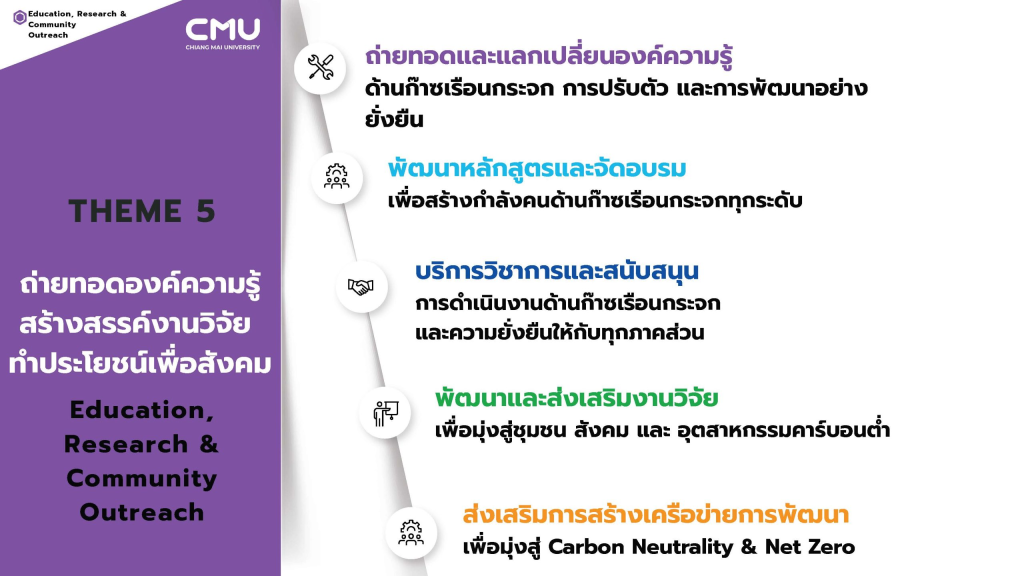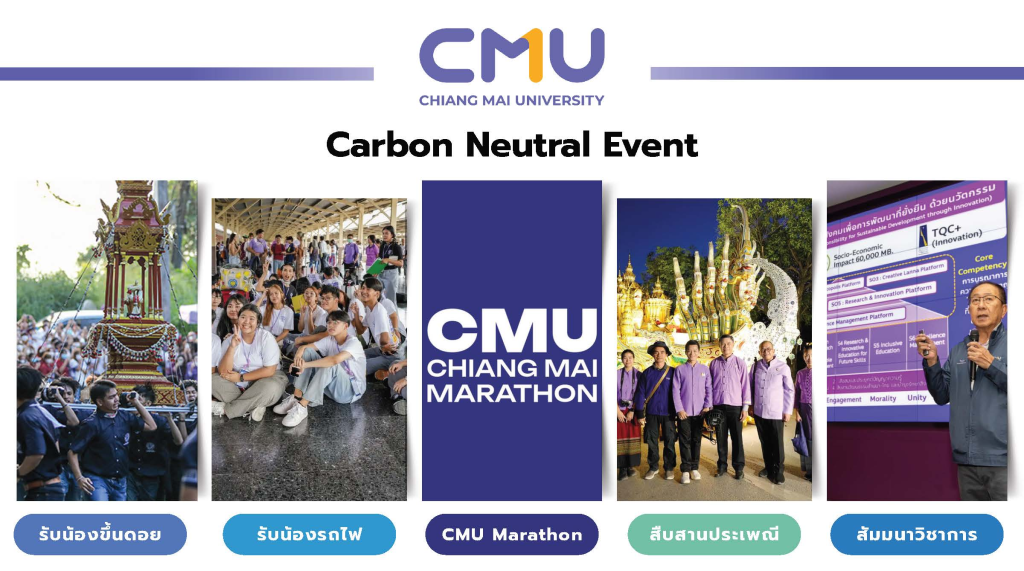Chapter 5: Transferring knowledge, creating research, and contributing to society (Education, Research & Community Outreach)
CMU Aims to Be a “Carbon Neutrality University”
Part 5: Knowledge Transfer, Research Creation, and Social Benefit (Education, Research & Community Outreach)
Carbon neutrality cannot be achieved solely through technical measures or energy projects. It also requires knowledge, research, and community engagement. Chiang Mai University (CMU) therefore focuses on education, research, and community outreach to create sustainable structural change.
________________________________________
🔎 Operational Guidelines
1. Knowledge Transfer and Exchange
o Organize training courses, seminars, and academic forums to share knowledge on greenhouse gas management, climate change adaptation, and sustainable development.
2. Curriculum Development and Training
o Create training courses on energy and the environment, covering all levels, from personnel and students to the community and industry.
3. Academic Services and Professional Support
o Promote carbon footprint operations, environmental reporting, and sustainability management for external organizations and communities.
4. Research Development and Promotion
o Promote research and innovation for society, such as low-carbon technologies and resource management. and clean energy systems
o Apply knowledge to practical applications to create economic, social, and environmental outcomes
5. Networking Collaboration
o Connect with domestic and international agencies to effectively drive the Carbon Neutrality and Net Zero goals
________________________________________
🌍 Examples of concrete activities
• Carbon Neutral Events such as the “Horizontal Freshman Orientation” event, the “CMU Marathon”, traditional events, and academic seminars that calculate and offset the event’s carbon footprint
• Chiang Mai University’s Carbon Footprint Event Platform, which enables event organizers to systematically measure carbon emissions and reductions
• Community-based research that enhances sustainable energy, environmental, and agricultural management
________________________________________
✅ CMU’s Next Steps
By combining research, knowledge transfer, and networking, CMU is not only an academic leader but also a social driving force, helping Thailand achieve greenhouse gas emissions reduction and sustainable development. ________________________________________
Summary: 5 Frameworks for a Carbon Neutral University
1. Theme 1: Carbon Footprint Monitoring
2. Theme 2: GHG Mitigation
3. Theme 3: GHG Removal, Capture & Storage
4. Theme 4: Climate Adaptation & Resilience
5. Theme 5: Knowledge Transfer, Research Creation, and Community Outreach
With these five frameworks, Chiang Mai University is steadily and sustainably moving toward its goal of becoming a “Carbon Neutral University.”





